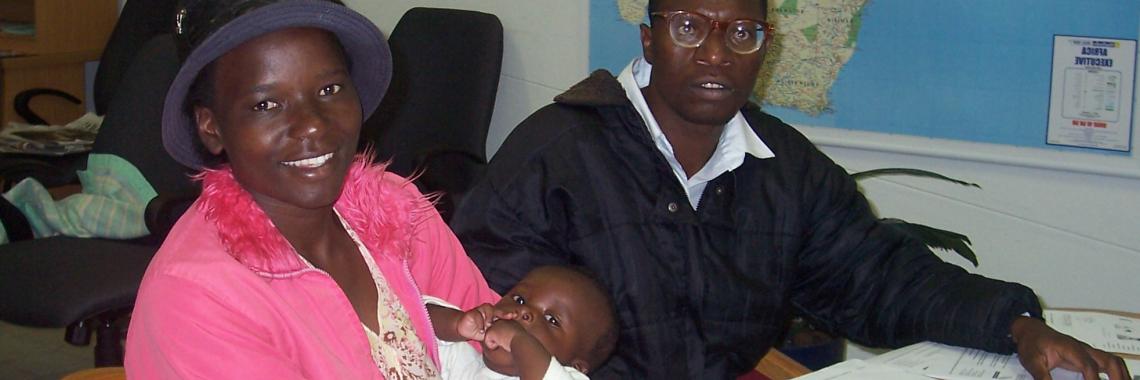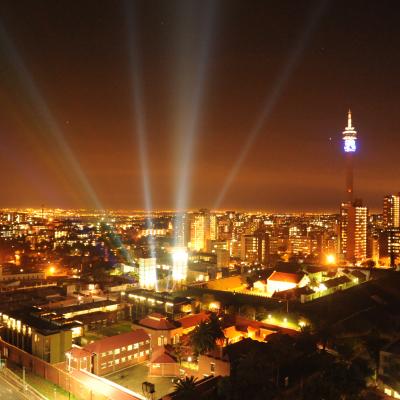
Immigration Help Desk
Background
Migrants – including irregular migrants – consume services, participate in the informal economy and are residents of socially excluded areas targeted for assistance. Cross border migrants are accused by certain organized groups – rightly or wrongly – of being illegitimate competitors for scarce social resources, including low-/ semi-skilled employment and opportunity to trade. The conflicts arising from these accusations, and their consequences, occur and must be managed at the local level, as they starkly did (and were) in the wave of xenophobic attacks directed against internal and cross-border migrants living in Johannesburg’s disadvantaged communities that occurred over the course of May and June 2008 and of most recently, in April 2015.
Goal and objectives
In essence, the city’s policy on migration is aimed at facilitating the integration of migrants to a level where immigrants have similar participation patterns to the non–immigrant citizens in community structures, fulfilment of civic duties as well as their contribution to the economic, cultural, religious and social life/system in Johannesburg. With the aim to achieve that, through its immigration policy, the city of Johannesburg, has established many complementary initiatives and tools, in order to improve "Living Together".
Implementation
Tools to oversee the implementation of the above are outlined as follows:
1. Reception and Tracking of New Arrivals
The reception strategy is critical as it will enable the newcomers and established migrants to have an avenue through which they can receive information, connect to opportunities that will allow them to participate in the active life of their communities and empower them with the necessary tools to navigate the city, and track them as they do.
2. Migrant Help Desk
This is a first point for new arrivals in the city or established migrants in the city. It is the hub providing multi-media information on the city and facilitates connections to various resources critical to migrants' adaptation in the city.
3. Language Centre
Language is a key tool of integration. The role that the city can play in the learning of indigenous languages and/or English is critical in promoting inclusion.
4. Orientation Program for New Arrivals
An education program targeting migrants will be set up in all the Migrant Help Desks. The aim of the education program is to assist the migrant to understand the culture of the host country, duties, rights and obligations and knowledge of the law emphasizing zero tolerance for crime.
5. Education Programs Targeting Locals
This is an education program as opposed to an awareness campaigns to be instituted among the locals – through schools, churches and community-based organizations, on issues of migration. High-risk areas (those with a higher probability of xenophobic attack break-outs) are prioritized.
6. Participation
The key outcome here is to promote the participation of migrants in the decision-making processes of community activities designed for their benefit and this is facilitated through platforms such as school governing bodies, police forums, business forums and so forth.
7. Information Management System
This is a database of information on migrants which draws data from other migration, human rights, security and statistical agencies. It is updated on a quarterly basis
8. Inter-Sectoral Collaboration to Advance the Integration of Migrants
The Johannesburg Migration Advisory Panel is a forum made up of non-governmental organizations and city departments that meets on a monthly basis to look at challenges that confront migrants. The Johannesburg Migration Advisory Committee facilitates the integration of plans from the various key departments that have an impact on the migrants in the various spheres of government and it is chaired by the executive mayor.
9. Calendar Events
The Heritage Month is the celebration of cultures and values. Its aim is to change people's misperceptions about other African cultures and traditions. The International Migrants Day attempts to meet the same objectives. The International Human Rights Day on the other hand, aims to educate and empower communities with relevant information about human rights obligations.
Results
The beneficiaries of the MHD include all documented and undocumented migrants, that is, both internal and cross-border migrants, the staff of the city and the broader public. Currently there are migrants from about 25 different countries who are utilising the services of the MHD. Some of the countries include Zimbabwe, Malawi, Zambia, Lesotho, Mozambique, Botswana, Swaziland and various countries in Asia.
As of 2008, a total of 2975 migrants have visited the city’s Migrant Help Desks for various services – including but not limited to general enquiries, documentation, education, health care, social services, business licenses, repatriation as well as resettlement information. Being the first contact the newcomers have when they arrive in the city, the Migrant Help Desks also guide the immigrants toward resources that they might need, including the tools and initiatives mentioned previously.
